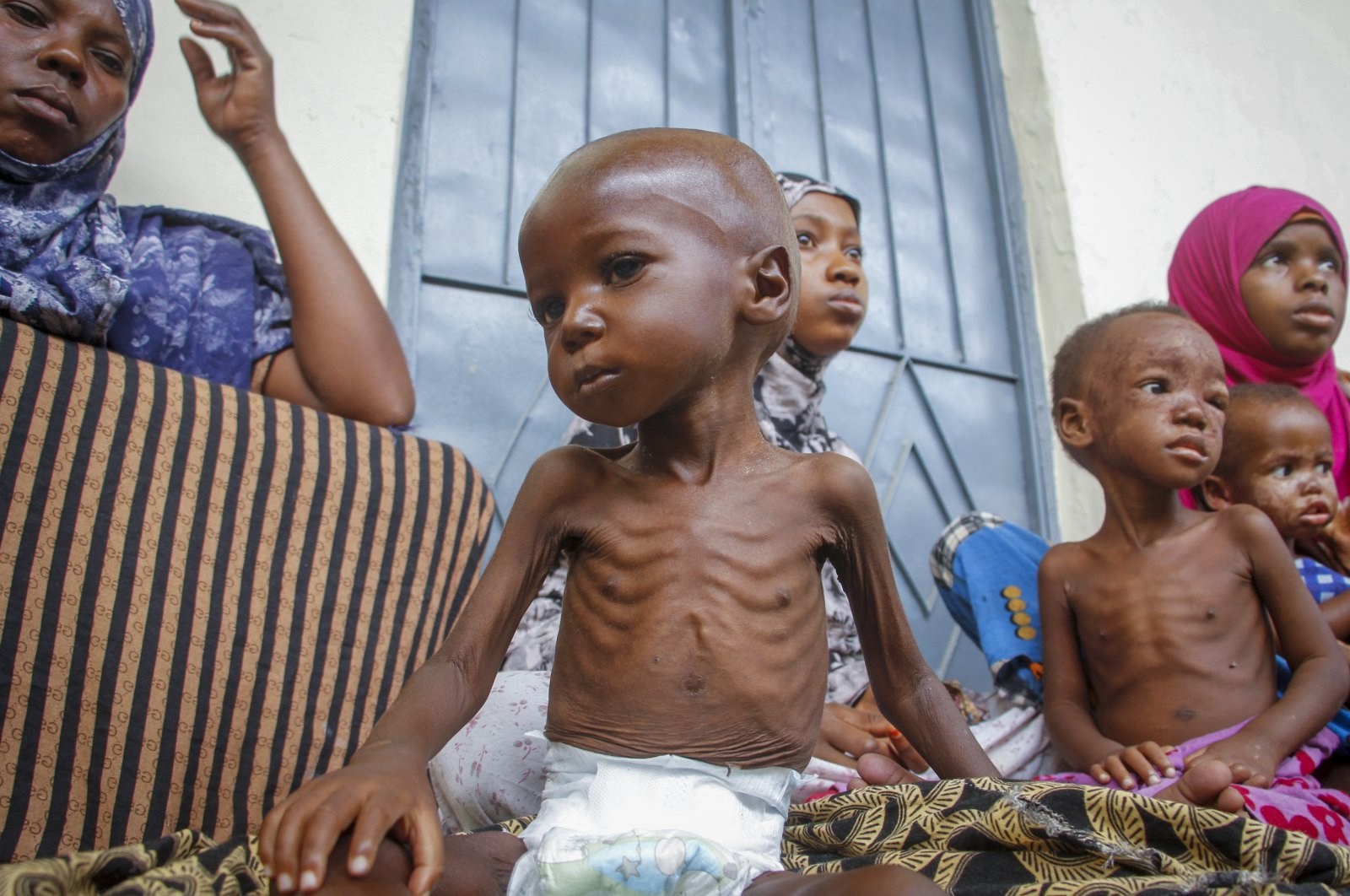Hundreds die as Somalia faces famine
Somalia records hundreds of deaths as the drought worsens and the country faces famine.
-

Hundreds die as Somalia faces famine.
A drought in the Horn of Africa has taken away four of Owliyo Hassan Salaad's children this year.
Now she cradles Ali Osman, her weak and squalling 3-year-old, whom she carried on a 90-kilometer walk from her hamlet to Somalia's capital, frantic not to lose him as well.
She can scarcely speak about the young bodies buried back home in the dirt too dry for planting as she sits on the floor of a malnutrition treatment clinic full of worried mothers.
The death toll is rapidly increasing amid the region's worst drought in four decades. According to previously unreported data supplied to the Associated Press, at least 448 people have died this year in malnutrition treatment centers in Somalia alone.
Authorities in Somalia, Ethiopia, and Kenya are now focusing on the difficult challenge of preventing starvation.
'Silent death'
Many more individuals are dying without the knowledge of authorities, such as Salaad's four children, all of whom are under the age of ten. Some are killed in isolated pastoral settlements. Some people perish while undertaking rescue missions. Some die even after reaching displacement centers because they are hungry beyond help.
“Definitely thousands” have died, the UN humanitarian coordinator for Somalia, Adam Abdelmoula, told reporters on Tuesday, though the data to support that is yet to come.
Salaad had four more children with her husband. They were too weak to travel to Mogadishu, she explained.
Drought comes and goes in the Horn of Africa, but this time it's like no other. Humanitarian assistance has been sapped by global crises like the COVID-19 pandemic and now the war in Ukraine. Prices for staples like wheat and cooking oil are rising quickly, in some places by more than 100%.
Read next: Horn of Africa drought drives 20 million toward hunger
Millions of the livestock that provide families with milk, meat, and wealth have died. Even the food to treat hungry people like Salaad’s son is becoming more expensive and, in some places, might run out. Thus, for the first time, a fifth straight rainy season might fail.
An “explosion of child deaths” is coming to the Horn of Africa if the world focuses only on the war in Ukraine and doesn’t act now, UNICEF said on Tuesday.
Famine even threatens Somalia’s capital as displacement camps on Mogadishu’s outskirts swell with exhausted new arrivals. Salaad and her son have turned away from a crowded hospital after arriving a week ago.
They were sent instead to the treatment center for the extremely malnourished where rooms are full, extra beds have been put out and yet some people must sleep on the floor. Mothers wince, and babies wail, as tiny bodies with sores and protruding ribs are gently checked for signs of recovery.
“The center is overwhelmed,” said Mustaf Yusuf, a physician there. Admissions more than doubled in May to 122 patients.
'Drama with no witness'
The international community's sluggish response did not help. At the time, the UN humanitarian coordinator for Somalia described the situation as "a drama without witnesses." The alarms are going off again.
More than 200,000 people in Somalia face “catastrophic hunger and starvation, a drastic increase from the 81,000 forecasts in April,” a joint statement by UN agencies said Monday, noting that a humanitarian response plan for this year is just 18% funded.
Somalia is far from alone. According to UNICEF, the number of children treated for the most acute malnutrition — "the tip of the disaster" — increased 27 percent in Ethiopia's drought-affected regions in the first quarter of this year compared to the same period last year.
In Kenya, where Doctors Without Borders reported at least 11 deaths in a single county's malnutrition treatment program earlier this year, the rise was 71 percent.
Recent arrivals were devastated as they recalled watching family members die in one of Mogadishu's teeming displacement camps.
“I left some of my children behind to care for those suffering,” said Amina Abdi Hassan, who came from a village in southern Somalia with her malnourished baby. They’re still hungry as aid runs dry, even in the capital. “Many others are on the way,” she said.

 4 Min Read
4 Min Read










